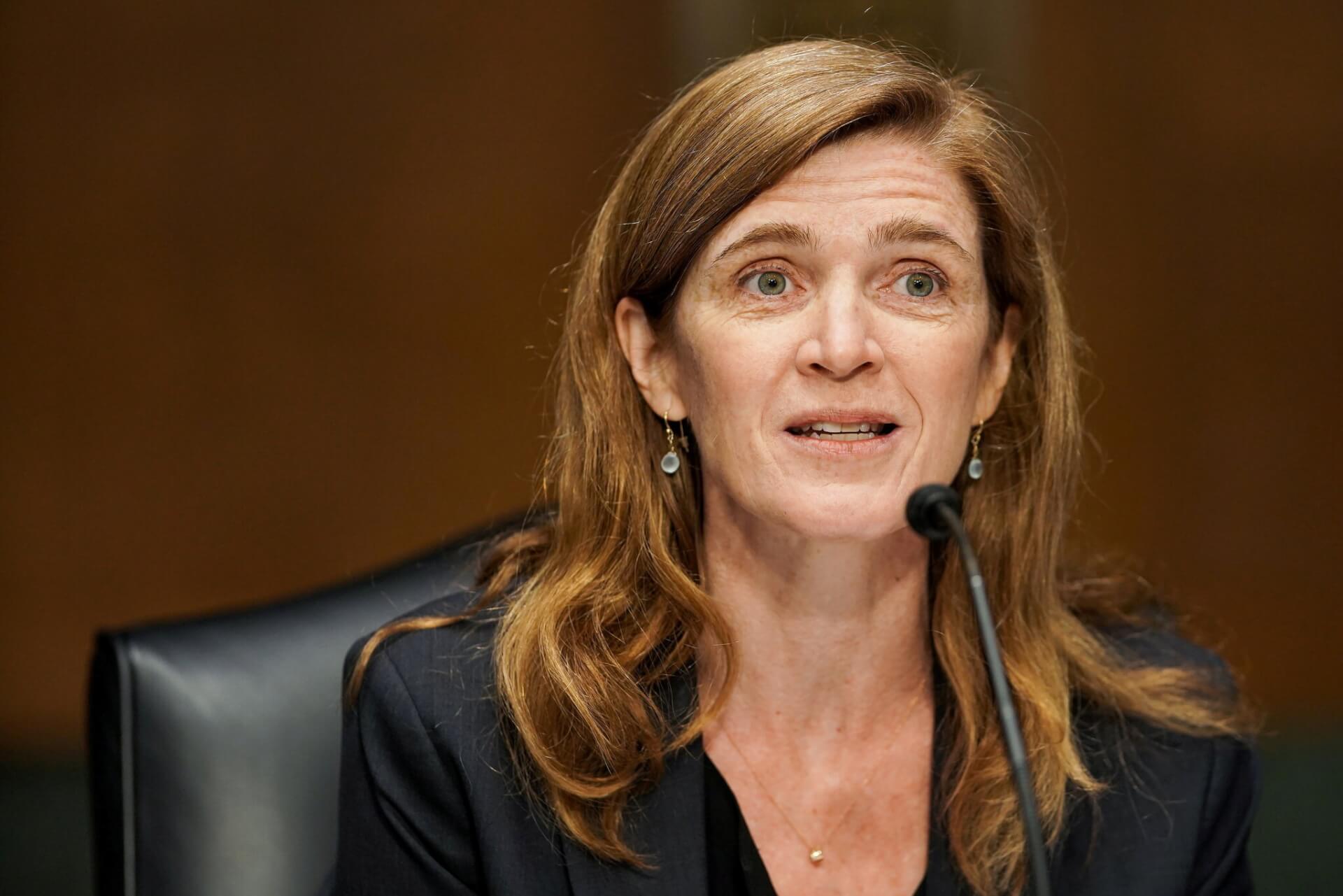On Wednesday, United States Agency for International Development (USAID) chief Samantha Power raised concerns about the “dehumanising rhetoric” used by Ethiopian officials amid the ongoing conflict in the Tigray region. She also called on the Tigray People’s Liberation Front (TPLF) rebels to withdraw from Tigray’s two neighbouring areas.
Power, who is on an official visit to Addis Ababa, said the kind of rhetoric used by Ethiopian Prime Minister (PM) Abiy Ahmed “only hardens tensions [and] often accompanies ethnically-motivated atrocities.” She was referring to PM Ahmed’s statement last month wherein he called the TPLF “the cancer of Ethiopia” and demanded collaboration to uproot the “invasive weed.” The USAID chief added that the possibility of dialogue “becomes more and more challenging” when such language is used.
Today marks nine months since the start of the conflict in #Tigray.
— Samantha Power (@PowerUSAID) August 4, 2021
The US is watching, with great alarm, as a conflict that began in Tigray is now beginning to spread.
She stressed the importance of settling the crisis and urged all parties involved in the conflict to focus on starting a dialogue and “move away from […] accusations and counter-accusations.”
Power also urged the TPLF rebels to withdraw from Tigray’s two neighbouring provinces of Afar and Amhara, saying that the TPLF’s military expansion has led to “roughly 76,000 internally displaced persons in Afar and 150,000 internally displaced persons in Amhara.” She added that “there is no military solution to an internal conflict” and called on the government and rebels to “end hostilities and agree to an immediate ceasefire.”
Also Read: Does International Aid Lead to Dependency? The Case of Ethiopia
Moreover, the USAID chief expressed concerns over humanitarian aid not reaching the intended population. “Between mid-July and August 2, according to the UN, what was needed was 1,500 trucks, and the number of trucks that rolled in and were able to pass is 153. That’s 10 per cent of needs,” she noted. The “roads have to be secure”, and all parties must allow “unhindered humanitarian access to put the needs of civilians in desperate need, first,” Power said.
Also Read: TPLF Rebels Launch New Offensive, Capture Key Towns in Tigray
In June, the Ethiopian government announced a unilateral ceasefire in Tigray and started withdrawing troops, following which the TPLF launched an offensive to retake the regional capital Mekelle. In recent weeks, the fighting between the TPLF and local militias has surged as the group militarily expanded into neighbouring Afar and Amhara.
Ethiopia has been in the middle of a severe humanitarian and political crisis since November 2020, when the PM ordered a military response to an attack on a federal army camp in Tigray by the TPLF. The fighting quickly boiled over into a full-scale armed invasion by Ethiopian troops, who partnered with Eritrean soldiers in their operation. Ethiopian and Eritrean forces have also been accused of committing widespread atrocities against civilians, including massacres and using rape as a weapon of war.

